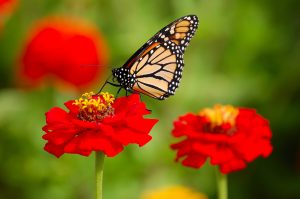Published by Hazel Booth
This is the last in my series of posts. I have already told you a little about what I hope to study (16) for the next three years. I’ve demonstrated how I’ve grown academically (17) and personally (18), and in this post, I tell you how I’m beginning to claim my niche in this crazy ol’ world of academia.
 For me the PhD is not a ‘journey’, it is a pupation. I am biological slurry, contained in an academic shell. Right now I’m vulnerable as hell; any predator could pick me off and still have space for tea. Goodness knows what will emerge but oh! It could be beautiful!
For me the PhD is not a ‘journey’, it is a pupation. I am biological slurry, contained in an academic shell. Right now I’m vulnerable as hell; any predator could pick me off and still have space for tea. Goodness knows what will emerge but oh! It could be beautiful!
Since my last post in which I came out of the ‘lived experience closet (18)’ my sense of being an imposter in academia has lifted (somewhat). Odd then, that my attendance at the ‘Imposter Syndrome as a Public Feeling in HE’ should come just after this revelation. Nonetheless it was an incredibly useful and interesting event.
 Much that is written about imposter syndrome suggests that it is situated inside the individual. The dominant view about imposter syndrome is that it is a personal failing to feel that you don’t belong. The advice given often focuses on how to convince yourself that you are worthy of belonging. As Michelle Addison said at the event, that’s how we end up with the intensely annoying inspirational tosh such as ‘fake it until you make it’ or its more annoying sibling, ‘fake it until you become it’. This is a trap I fell into, and it didn’t help one jot.
Much that is written about imposter syndrome suggests that it is situated inside the individual. The dominant view about imposter syndrome is that it is a personal failing to feel that you don’t belong. The advice given often focuses on how to convince yourself that you are worthy of belonging. As Michelle Addison said at the event, that’s how we end up with the intensely annoying inspirational tosh such as ‘fake it until you make it’ or its more annoying sibling, ‘fake it until you become it’. This is a trap I fell into, and it didn’t help one jot.
Little is made of the deeply exclusionary nature of the academy which reinforces this feeling. Historically HE was populated by young, monied, dependent-free males who were educated to become the venerable middle-class white males which still dominate the sector. So specific is this stereotype, that few fit. Consequently in more recent times the ivory towers are being scaled by a greater diversity of scholars, including those bearing a number of divisive and contested labels; women, older carers, working class, BME, and yes, mad people.
 Superficially, this is welcomed with a swelling tide of equal access policies, diversity training and support/counselling facilities. But academia is struggling against the onslaught. Incomers still have to learn to play by unwritten academic rules to speak a certain way, write a certain way, engage a certain way, and be a certain way. Imposter syndrome is intentionally constructed. Everyday encounters reproduce and perpetuate long term privilege, contributing to the belief that you are an imposter. The exclusivity/elitism serves a purpose. Like much social order, to establish your own sense of self and power it is important to define the boundaries between who is like us and who is not. This position is reinforced by the existence of the REF as an important funding stream, reliant on the long established rule that the scholar is only as good as their publications list. It seems the boundaries are being shored up by unexpected sources.
Superficially, this is welcomed with a swelling tide of equal access policies, diversity training and support/counselling facilities. But academia is struggling against the onslaught. Incomers still have to learn to play by unwritten academic rules to speak a certain way, write a certain way, engage a certain way, and be a certain way. Imposter syndrome is intentionally constructed. Everyday encounters reproduce and perpetuate long term privilege, contributing to the belief that you are an imposter. The exclusivity/elitism serves a purpose. Like much social order, to establish your own sense of self and power it is important to define the boundaries between who is like us and who is not. This position is reinforced by the existence of the REF as an important funding stream, reliant on the long established rule that the scholar is only as good as their publications list. It seems the boundaries are being shored up by unexpected sources.
However the business of paywalled, nepotistic publications is under attack, with open access articles joining the growing band of academic tweeters and other digital and innovative scholars in a disruptive move to democratise knowledge and make real world impact. The worrying tide of anti-intellectualism is fed by a deep distrust of the very exclusivity the academy is struggling to uphold. The new wave of academia is rising to meet those challenges. It seems that the construction of what a scholar is, is changing.
Yet still we find a sizeable percentage of aspiring scholars who feel they have little choice but to hold themselves to the eroding vision of an ideal scholar, even if they don’t quite agree with all that such a state of being represents. Among those who scale the walls, the dissonance between who they knew themselves to be and who they must become is strong. Yet however well they perform, they still don’t quite belong and risk becoming neither fish nor fowl, alienated from what they were, yet never quite what they wish to become. Each is living with imposter syndrome, a feeling of disconnection and a fear of being found out as an interloper.
I suspect that’s why my own decision to identify as a scholar with lived experience made me feel easier. Rightly or wrongly, I found ‘my people’ where I could belong in a shared sense of ‘otherness’. I found a place to fit at the edges of the academy.
To those who toil with imposter syndrome, I issue a call to arms. In the early stages of your career you may not have the power to challenge the status quo. You will need to learn to play the game, join the ranks and conform. You will always need to produce intelligent, ethical and capable work. But where you can, celebrate and enjoy your difference, and know that you are the new order of HE.
Credit for my emerging thinking on this go the Imposter Syndrome as a Public Feeling in HE event. Much of what I have written summarises and reconsiders the content from inspiring talks by and with:
Maddie Breeze, Yvette Taylor, Barbara Read, Cristina Costa, Rachel Handforth, Lewis Clarke, Dayo Eseonu, Michelle Addison, Colin Atkinson, Sarah Burton, Melanie Sims and Vikki Turbine (whose talk I missed while running for my train home, sorry Vikki).
I should give a special mention to Bourdieu and his thoughts around habitus which provided many of the speakers with a theoretical framework.
And finally huge thanks to my co-attendees, whose candid experiences and thoughts were generously and helpfully shared over teeny tiny cups of perilously strong coffee, in a room as hot as the devil’s undercrackers.
Sadly, my writing here does not do justice to the nuance which was given over the course of the day. I implore you to read further. Reading might include but should not stop at:
Addison, M., 2018. Overcoming Arlie Hochschild’s concepts of the ‘real’ and ‘false’ self by drawing on Pierre Bourdieu’s concept of habitus
Breeze, M 2017, Imposter syndrome as a public feeling. in Y Taylor & K Lahad (eds), Feeling Academic in the Neoliberal University: Feminist Flights, Fights and Failures. [London].
Berg, L. D., Huijbens, E. H. and Larsen, H. G. (2016) ‘Producing Anxiety in the neoliberal University’, The Canadian Geographer, 60(2), pp. 168-180.
Brown, N. and Leigh, J. (2018) ‘Ableism in academia: where are the disabled and ill academics?’, Disability & Society, 33(6), pp. 985-989.
Waterfield, B., Beagan, B. B. and Weinberg, M. (2017) ‘Disabled academics: a case study in Canadian universities’, Disability & Society, 33(3), pp. 327-348.
About the author
 Hazel Booth is an ERSC-funded student currently in her first year of PhD studies with the Faculty of Social Science at Stirling University. She is expertly supervised by Tessa Parkes (FSS), Paul Cairney (Politics) and Nicola Ring (Napier, School of Health and Social Care) and is already very grateful for their expertise and apparently limitless tolerance.
Hazel Booth is an ERSC-funded student currently in her first year of PhD studies with the Faculty of Social Science at Stirling University. She is expertly supervised by Tessa Parkes (FSS), Paul Cairney (Politics) and Nicola Ring (Napier, School of Health and Social Care) and is already very grateful for their expertise and apparently limitless tolerance.
She has been keeping a blog since the early days of the ESRC open competition. In it she offers an open and personal account of her voyage on the choppy seas of PGR study. She has brought her blog to the pages of the Faculty newsletter, writing a series of posts for readers which reflect on the transformative experiences she has already had.
Hazel’s blog can be found at https://the-answer-is.dreamwidth.org/
References
- Link to blog post 1: ‘why opinions matter’
- Link to blog post 2: the discomfort of not knowing’
- Link to blog post 3 ‘coming to a decision’